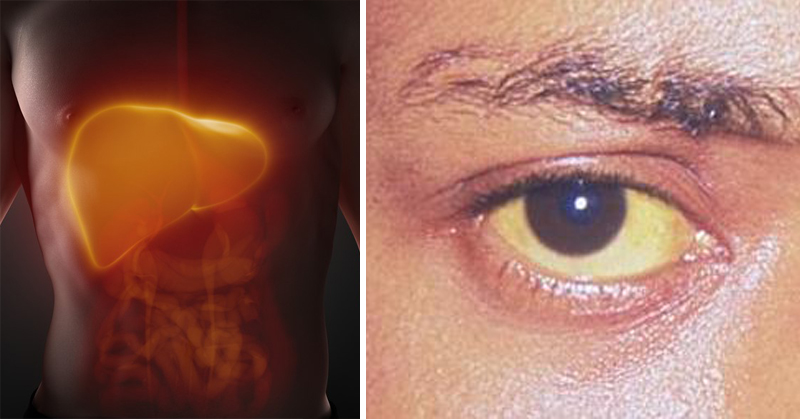A healthy liver that is functioning properly is essential for a healthy body. The liver’s primary function is to break down nutrients from the food you eat and aid in digestion. Recognize these early signs of liver damage, because it’s vital to catch this problem early and treat it properly – before you have full-blown liver disease.
10 Signs of Liver Damage
1. Skin Discoloration
Jaundice can occur in someone who is having liver problems due to elevated levels of bilirubin in the blood. Bilirubin has a yellowish pigment. It usually flows through the liver, then moves through the digestive tract and is eliminated. When the yellowish pigment is not removed, it is instead circulated throughout the body and is a sign of some type of liver disease. (1)
2. Skin Sensitivity
If the skin becomes itchy and oversensitive to touch, it may be a sign of a liver problem. While small or sporadic itchiness isn’t something to worry about, a constant or intense itch may be. Until the underlying cause is found and addressed, this issue will only worsen over time. (2)
3. Changes in the Abdominal Area
Pain or cramping in the lower abdominal area may be indicative of liver problems. If left untreated, a condition known as ascites can develop. This condition is a buildup of fluid in the abdomen that can lead to pressure being exerted on the lungs, causing difficulty with breathing. See a doctor if you are experiencing pain in your abdomen. (3)
4. Changes in Urine or Stool Color
When the liver becomes damaged, the urine changes to a darker yellow color. It may also become bloody, which creates an amber color, or dark brown. Dark yellow urine is also a sign of dehydration. Therefore, first increase your fluid intake. Check in with a health care professional if these symptoms persist. (4)
5. Fatigue
Suffering from a gassy sensation accompanied by stool pressure is an indication that the liver is not able to secrete digestive juices the way it should. These juices are essential for breaking down food, and there may be damage to the digestive system as well. Check in with a health care professional if you are experiencing this symptom. (5)
6. Loss of Appetite
Liver damage that is untreated can progress into liver disease. Significant changes in appetite that result in dramatic or rapid weight loss can be a sign of liver disease or even cancer and should be taken seriously. So take your loss of appetite seriously. Keep an eye on how you feel and if that loss of appetite persists. (6)

7. Acid Reflux
An early sign of a liver problem is experiencing frequent indigestion and acid reflux, which may eventually lead to vomiting. Make an appointment with a doctor if you are constantly experiencing indigestion, especially if you are vomiting frequently. While this could be a sign of liver damage, you may also need to boost your stomach acid. (7)
8. Retaining Fluids
Fluid retention can be caused by many things, and one of them is liver disease. If you notice swelling in your lower legs, ankles and feet, it may be a sign that there is damage to the liver. The liver supports the flow of blood, so any bloating or extra fluid should be checked out by your healthcare provider. (8)
9. Diarrhea
The liver plays an important role in the digestion process, so a damaged liver that isn’t working properly can result in an upset stomach, as well as digestive issues down the line. If you experience diarrhea or constipation that lasts for several days, it’s time to consult a health care professional.(9)
10. Feeling Sick
Sure, this symptom is generalized and could mean just about anything. However, the liver plays an important role in the body’s ability to get rid of toxins, so a buildup of toxins can affect the body in numerous ways. A feeling of fatigue with strange symptoms or feeling under the weather for an unusual length of time could be a sign of liver problems. (10)
Watch the video below for tips on how to avoid liver damage!


